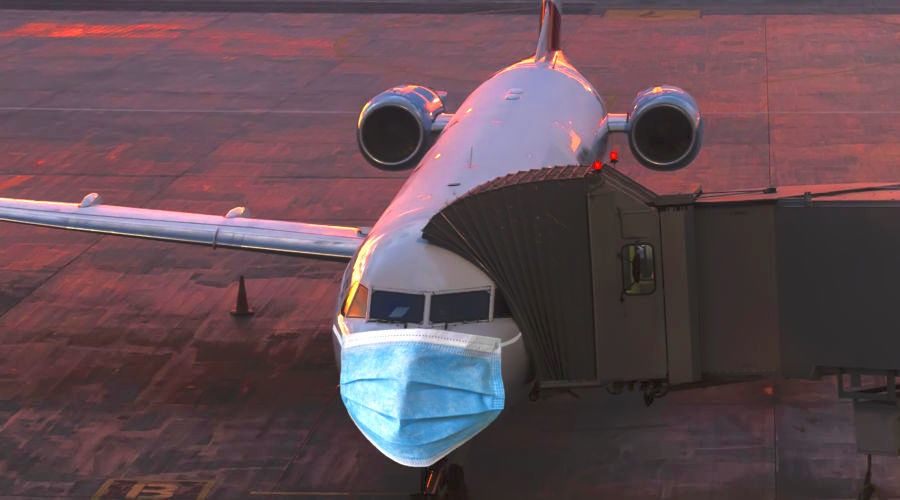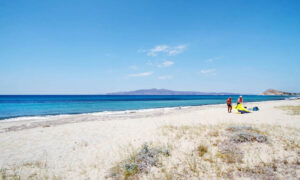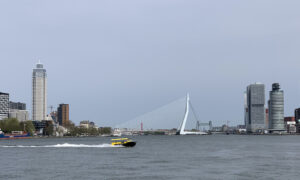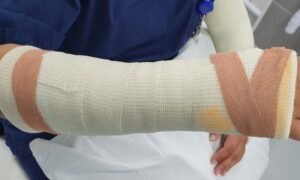(Editor’s note: This post on post-lockdown air travel was first published on The American in Paris blog. It’s reposted here with the permission of the author.)
“You are?” my European friends responded, bug-eyed, to my disclosure that I was flying to America this week. They had been watching CNN or some other similar network, in which the impression was being given that the country was burning to the ground a la “Mad Max.”
I knew better, and dodged the subject: “Well, the flights are really cheap, to be honest, and I can also do some in-person work for a client.” Both reasons were true, but to be honest, the idea of flying post lockdown seemed purely theoretical to me until it actually happened today.
I arrived back in Paris the day before lockdown in March of this year. I had cut short a business/ski trip in Bulgaria under advice from friends, though by Monday night, as I arrived back into Paris with all the shops in the airport already closed, it looked like wisdom.
Unbeknownst to any of us who came back that night or in the days after, we would not get to leave the country again for months, and even our daily trips out of our homes would be curtailed with the strange experience for those used to living in free societies: if stopped, we were expected to have “our papers” on us, explaining what we were doing, and why we were doing it, with consequences for “incorrect” answers.
I was delighted when confinement in Paris ended, almost a month ago now, and most of the city is quite “normal,” whatever that word means. Masks are only really required on public transportation, and most Parisians comply, but out on the street, a dwindling minority voluntarily wears them even when not required by law.
My first attempted flight purchase for this trip had been abortive, with Turkish Airlines. Turkish had been selling “ghost flights,” flights they had never intended to run but were happy to collect revenues for. In fact, when I told a frequent flier friend about the ticket, he sounded dismayed. “Turkish. I’m not sure they will actually honor that flight.”
Sure enough, they didn’t and two weeks after I had booked that flight and two weeks before I was supposed to fly, I was told that Turkish had cancelled my flight and yes, it might take 2-to-8 weeks to get a refund.
Chagrined that I was being used to help finance the airline’s working capital (yes, things are that bad) I was happy to find a comparably priced Aer Lingus ticket, though I had to shift my dates of travel slightly to make it work.
First rule of this current phase of travel: flights you buy might not actually happen. Be prepared; stay flexible.
I had chosen a mid-morning flight out of Charles de Gaulle, but the terminal felt as though it was either very early in the morning or very late at night, and in some strange circumstance. Almost every single shop was closed, everyone was masked and there was no rush, no stress, no bustle.
I made my way to Terminal 2A, which is not where Aer Lingus normally operates out of, but they had helpfully told me by email a couple days before not to go to Terminal 1.
Second rule of this current phase of travel: pay extra attention to email alerts telling you where to go and what to do; it can be the difference between making and missing your flight.
I stood in a “socially distant” queue to check in, though luggage tends to naturally space us. When I got to the checkin desk I slid my passport under the now ubiquitous plexiglass. The agent took my luggage, handed me my boarding pass, and then asked me if I had filled out the “Covid form.”
Because she asked in such a nonchalant tone my brain didn’t go to red alert. “No,” I answered. “If you can wait here for my colleague, she will bring you a copy.” I turned to my right and saw a small queue developing of other similarly clueless travelers. Before too long, her colleague did return with paperwork specifically from the government of the Republic of Ireland. The form was intended to help with contact tracing, but for transiting passengers like myself, less information was needed.
Third rule of this current phase of travel: be prepared for extra paperwork that may be country-specific. Be patient and don’t panic when confronted with something you didn’t hear about ahead of time.
When I arrived in Dublin this morning I wasn’t permitted to stay in the airport and follow the signs to “connecting flights” but was directed to the border and airport exit where I turned in my form and got a stamp in my passport for my shortest stay in Ireland ever. “Sorry I’m not staying,” I smiled. “Next time,” she nodded.
Fourth rule of this current phase of travel: be prepared to have to “exit” the airport, even on a layover, and go through security again, and don’t forget to keep it snappy while doing so: there’s no guarantee they’ll hold the flight while you’re taking your time.
I left through baggage claim and went upstairs to departures and, like all the others on my flight who were continuing on to destinations after Dublin, had the great pleasure of going through security a second time, but this time with an Irish accent.
I looked up at the screen and saw that I would get a gate number after passing through US Customs. Ireland, like Canada, has a US Customs section which pre-clears incoming passengers to the US, allowing them to skip the line when they land. There are always random additional security searches, but with so few passengers traveling to the US, your chances of being one of the random searches increases dramatically. My lucky number came up and as I was unpacking my carry-ons for the third time today (there’s an additional security screening at the US border in these countries) I was told to follow some of the employees to a secluded part of what was already a ghostly reception area. They made me turn on my laptops and ran bomb residue checks on my hands and almost every part of all my bags.
Having passed my third security screening of the day, it seems that the authorities of three different countries, France, Ireland, and the United States, were satisfied that I was not a malefactor. If you think about it, this makes sense. At a time when so few people are traveling, it might be the perfect time to attempt an act of terror.
Fifth rule of this current phase of travel: each country you pass through on your trip may make you do additional screening that has nothing to do with your physical health. Stay patient and stoic through the process.
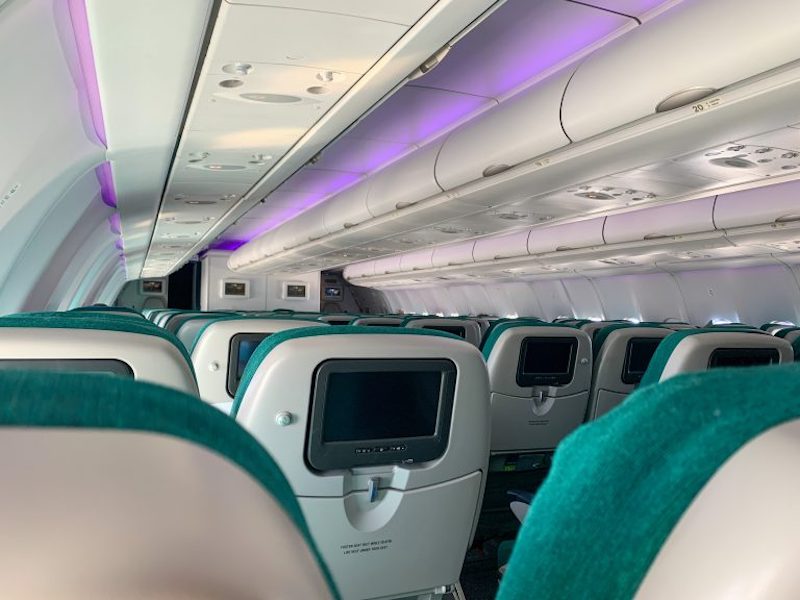
As we boarded the A330 for our transatlantic flight, the flight attendants told us that we could sit anywhere we wanted. There would only be 39 souls on a flight that could seat 340. But as we got closer to departure the purser announced that the seats had been allocated by the computer based on flight load, and there was a method to the random assignments: we needed to sit where we were assigned for takeoff and landing. In between those times we could sit where we wanted in between. I was one of the last ones to board and watched most of the plane walk past me to the back, where they were originally seated.
Sixth rule of this current phase of travel: be prepared to have a lot of space to yourself. On the Dublin-Chicago segment I had a 4-seat row to myself, with no one sitting in the row in front of me nor in the three rows of window seats to my left.


